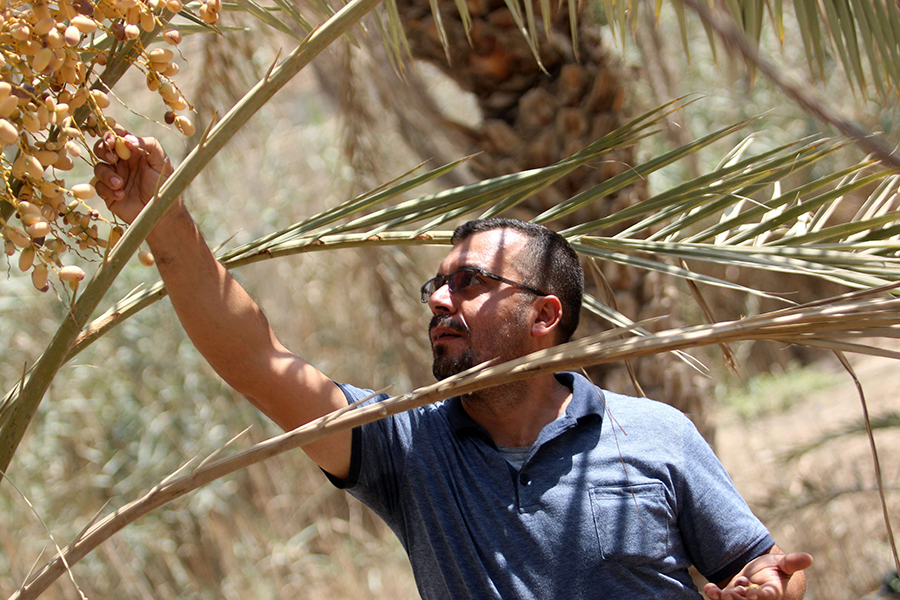Conflict and drought ravage prized date palms across Iraq
Updated: 2018-10-01 12:09

Sweet Iraqi dates adorn tables in homes across the country, but the fruit tree and national symbol has come under threat from conflict and crippling drought.
Shopping in the southern city of Basra, Leila only buys "the queen of dates"-those produced in the surrounding province.
Her husband Mehdi, 68, said the couple have the sweet fruit "every lunchtime, and also for snacks between meals".
The pair devours a kilogram over two to three days, at a cost of 5,000 dinars, or just over $4.
But high unemployment and price hikes mean not all families can afford such luxury. For trader Salem Hussein, who has been selling dates for 40 years, the decline set in long ago-before the drought and even this century's series of deadly conflicts.
Imports fill the gap
The 1980-88 Iran-Iraq war decimated the groves of date palms on Iraqi soil, he said, dressed in a sky blue robe and white skullcap.
The majority of trees lining the Shatt al-Arab waterway, marking the border between the two countries, were incinerated by shells and rockets.
Hussein once dreamed of expanding palm groves and introducing even more varieties than the 450 already boasted by Iraq, which used to be known as the land of 30 million palm trees.
The country's dates were long exported "to the United States, Japan and India", recalled the 66-year-old.
"We thought of developing and doubling the number of palms, but the figure only fell."
Official estimates put the decline at 50 percent of pre-1980 numbers.
"We hoped for a better future-and it got even worse," Hussein said.
Iraqi agriculture has been especially hard hit by drought this year, resulting in an official ban on the growing of rice and cereals which require a lot of water and the deaths of thousands of animals.
With Iraqi farmers hiking their prices due to the drought, seller Aqil Antuch has adapted to keep his cash-strapped customers happy.
He now sells dates imported from Iran, Saudi Arabia, the United Arab Emirates and Kuwait at his central Basra shop, which he has run for 25 years.
"The Saudis, who produce a high quantity, want to sell their merchandise and lower the price to 1,500 dinars per kilo," said Antuch, 52.
In recent years, farming has also been hit by an exodus from rural areas, as Iraqis flock to cities and informal neighborhoods.
Irrigation channels have become open sewers and the rows of trees which once provided shade have disappeared.
Palm groves have also been ripped up to make way for oil installations, the country's biggest source of revenue.
Other groves have been snapped up for construction of new buildings.
In a cruel irony, the majority of dates now sold in Iraq come from trees that first took root in the country, before being replanted in other Gulf states decades ago.
AGENCE FRANCE-PRESSE
























